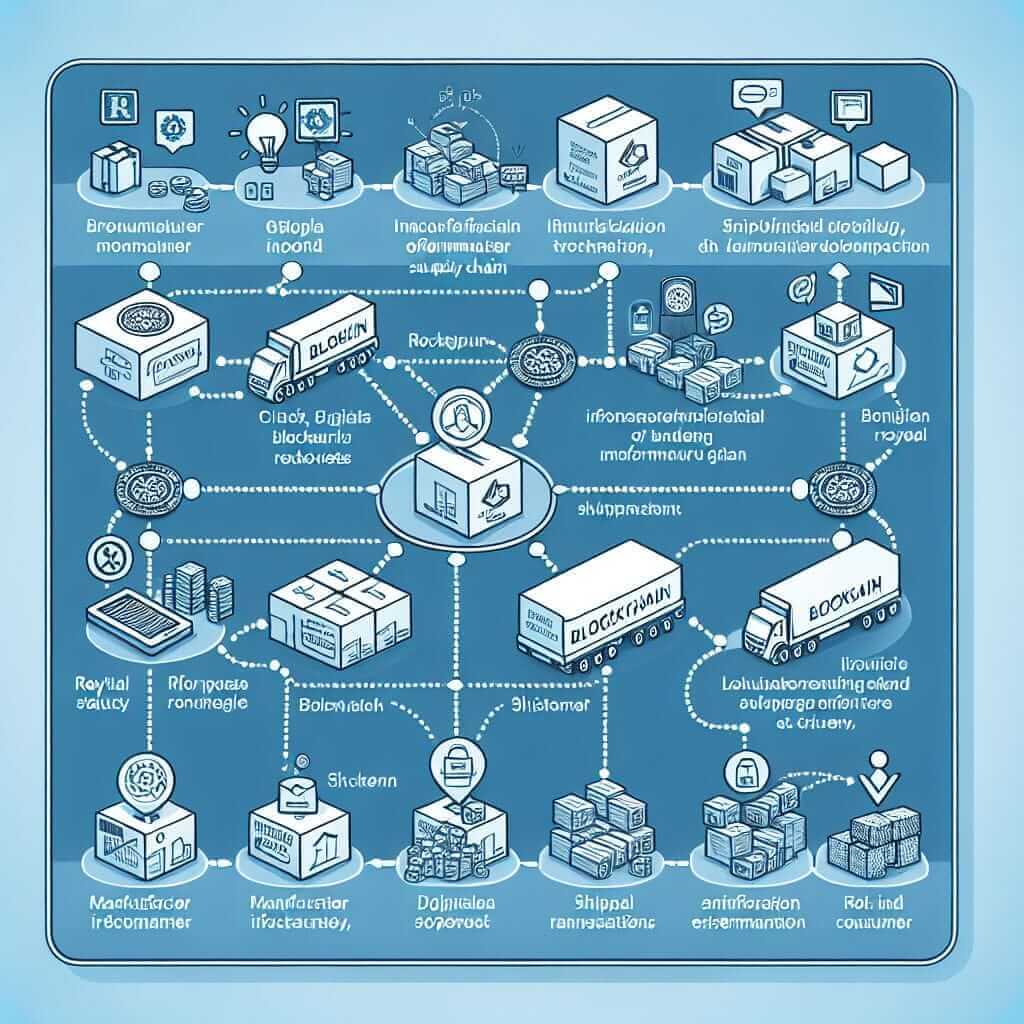In the IELTS Reading section, candidates often encounter a variety of topics that test their comprehension and analytical skills. One such emerging topic is the use of blockchain technology to improve supply chain resilience. Given the increasing attention to blockchain and its applications, it’s not surprising that this topic might show up in your IELTS reading material. In this post, we’ll dive into a comprehensive reading passage and related questions to help you practice effectively for the IELTS Reading section.
Practice Reading Passage: Blockchain Technology and Supply Chain Resilience
Reading Passage
Blockchain technology is emerging as a robust solution to reinforce supply chain resilience. Traditionally, supply chains have been susceptible to various disruptions due to the reliance on centralized databases, which often lead to opaque and fragmented information flows. However, the decentralized nature of blockchain offers a transformative alternative.
At its core, blockchain is a distributed ledger technology that records transactions in a verifiable and immutable manner. Each block in the chain contains a batch of transactions, and once these blocks are validated, they are linked to the preceding blocks, creating an irreversible chain of information. This technology ensures transparency and traceability throughout the supply chain, fostering trust among stakeholders.
One significant advantage of blockchain in supply chains is its ability to provide real-time visibility. For instance, companies can use blockchain to track products from the point of origin to the consumer, reducing the chances of counterfeiting and ensuring product authenticity. This real-time tracking capability is particularly beneficial in industries such as pharmaceuticals and luxury goods where product integrity is pivotal.

Moreover, blockchain enhances supplier management by facilitating smart contracts. These self-executing contracts can automatically enforce the terms of agreements when predefined conditions are met, minimizing delays and disputes. Consequently, businesses can achieve greater efficiency and reliability in their operations.
Another critical aspect is data security. Blockchain employs cryptographic algorithms to protect data, making it virtually tamper-proof. Enhanced security is crucial for safeguarding sensitive information and maintaining the integrity of the supply chain, especially in sectors dealing with confidential data, such as finance and healthcare.
Questions and Exercises
Question Type: Multiple Choice
-
What is the primary nature of blockchain technology?
a) Centralized
b) Distributed
c) Linear
d) Opaque -
How does blockchain ensure data security in supply chains?
a) By encrypting data using advanced algorithms
b) By storing data in centralized databases
c) By creating long chains of information
d) By deleting data periodically
Question Type: Identifying Information (True/False/Not Given)
-
Blockchain technology is highly beneficial for tracking the authenticity of luxury goods.
- True
- False
- Not Given
-
A significant challenge in traditional supply chains is the transparency of information.
- True
- False
- Not Given
Question Type: Matching Information
-
Match the following descriptions with the relevant blockchain benefits:
- Increasing operational efficiency
- Ensuring product integrity
- Maintaining data security
Descriptions:
a) Safeguarding sensitive information
b) Employing smart contracts to enforce agreements
c) Providing real-time tracking from origin to consumer
Answer Keys and Explanations
- b) Distributed – Blockchain technology is fundamentally decentralized and operates as a distributed ledger.
- a) By encrypting data using advanced algorithms – Blockchain employs cryptographic methods to secure the data.
- True – The passage explicitly states the benefit of blockchain for ensuring the authenticity of products, particularly in luxury goods.
- True – It is mentioned that traditional supply chains often suffer from opaque and fragmented information flows.
- Match Information:
- Increasing operational efficiency → b) Employing smart contracts to enforce agreements
- Ensuring product integrity → c) Providing real-time tracking from origin to consumer
- Maintaining data security → a) Safeguarding sensitive information
Lessons Learned
Common Mistakes to Avoid
- Misunderstanding technical terms: Ensure you understand the jargon and specific terms in the passage. For instance, terms like “distributed ledger” and “smart contracts” should be clearly understood.
- Not linking ideas: Sometimes answers are derived from understanding how sentences connect rather than isolated facts.
Vocabulary to Know
- Immutable (adj): /ɪˈmjuː.tə.bəl/ – Unchanging over time or unable to be changed.
- Cryptographic (adj): /ˌkrɪp.təˈgræf.ɪk/ – Relating to the art of writing or solving codes.
- Smart contracts (n): /ˈsmɑːrt ˈkɒn.trækts/ – Self-executing contracts with the terms directly written into lines of code.
Grammar Focus
Using Relative Clauses:
- Definition: Relative clauses are clauses starting with the relative pronouns ‘who,’ ‘that,’ ‘which,’ ‘whose,’ ‘where,’ ‘when.’ They are used to define or identify the noun that precedes them.
- Example: “The suppliers, who are verified on the blockchain, can be trusted completely.”
Final Tips for Scoring High in IELTS Reading
- Practice Regularly: Familiarize yourself with different types of passages and question formats.
- Improve Your Vocabulary: A robust vocabulary will help you understand and analyze passages better.
- Analyze and Review: Go through your mistakes to understand where you went wrong and learn from them.
- Skimming and Scanning: Develop these techniques to quickly locate information in the text.
Remember, consistent practice and a keen understanding of different topics and question types will pave the way for your success in the IELTS Reading section!